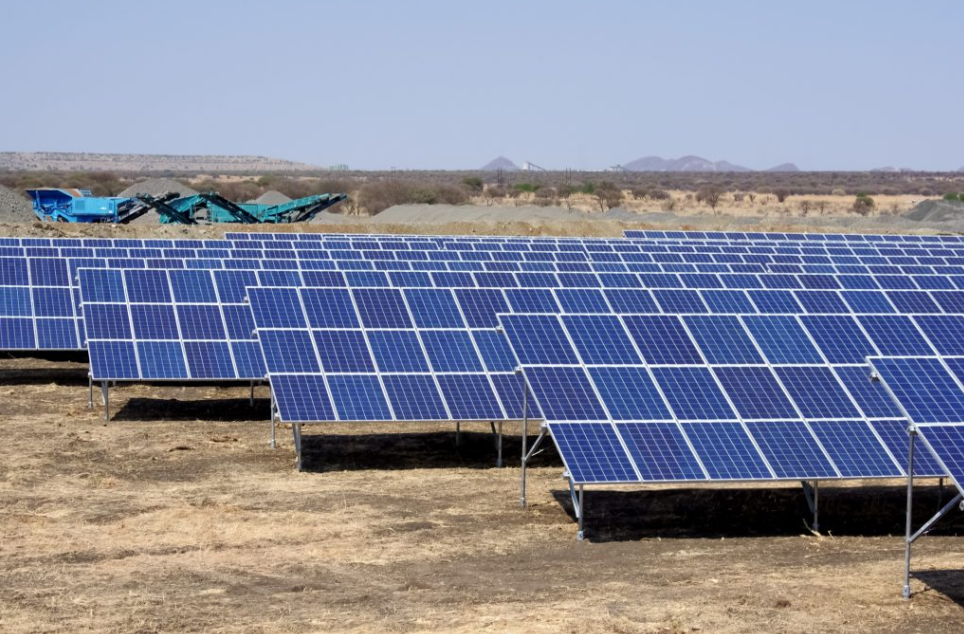|
Listen to audio version
|
There are times where you may need to borrow electricity from BPC (Botswana Power Corporation). This includes when electricity recharge systems are down and you are unable to buy electricity. Or when your mobile phone you usually use to buy electricity has run out of battery and now you are stuck in the dark. Or when places you go to buy electricity at your grocery store such as Choppies, Spar or from Botswana Post or your local tuckshop (Semausu) is closed. Or maybe you simply don’t have enough money at the time in your bank account to buy electricity. The you can temporarily use the following steps to borrow electricity from BPC. (ADIMA MOTLAKASE)
Follow these steps to borrow electricity from BPC
Here are the steps to borrow electricity from BPC (Adima Motlakase)
- When your electric meter says Low Power and the electricity has turned off
- Go to your electric meter box
- press 811 on the numeric keypad
- press enter ⏎
- You will be given emergency credit of at least P5.00. This can only be done once.
- Thus you have effectively borrowed electricity from BPC and you will have to pay it back as soon as you reload next time.
How we use electricity in our homes in Botswana
There are many ways that electricity is used in homes in Botswana. Some common examples include:
- Lighting: Electricity is used to power light fixtures, such as lamps and overhead lights, to provide illumination in homes.
- Appliances: Many household appliances, such as refrigerators, washing machines, and ovens, run on electricity.
- Heating and cooling: Electricity is often used to power air conditioning units and heating systems to keep homes comfortable in different weather conditions.
- Entertainment: TVs, radios, and other electronic devices run on electricity and are commonly found in homes in Botswana.
- Computing: Computers, laptops, and other electronic devices used for computing and communication require electricity to operate.
Overall, electricity is an important part of daily life in homes in Botswana, providing power for a wide range of activities and functions. It is therefore important to use electricity wisely and remove the need to borrow electricity from BPC.
Steps to save electricity around your home
Here are a few steps that you can take to save energy around your home thus eliminating the need to borrow electricity from BPC:
- Turn off lights and appliances when they are not in use. This is an easy and effective way to reduce energy consumption in your home.
- Invest in energy-efficient appliances. When it’s time to replace old appliances, look for models that are Energy Star certified or have a high energy efficiency rating. These appliances use less energy and can save you money on your energy bills over time.
- Use LED light bulbs. LED bulbs use up to 80% less energy than traditional incandescent bulbs and last much longer, so you’ll save energy and money by replacing your old bulbs with LED ones.
- Insulate your home. Proper insulation can help to keep your home warm in the winter and cool in the summer, which can help to reduce your energy usage.
- Use a programmable thermostat. A programmable thermostat allows you to set your home’s temperature to automatically adjust when you’re not home, so you’re not using energy to heat or cool an empty house.
- Turn off electronics when they are fully charged. Many electronics, such as laptops and smartphones, continue to use energy even when they are fully charged. Unplug them or turn them off to save energy.
- Use power strips. Power strips allow you to turn off multiple electronics at once, making it easier to reduce standby power usage.
By following these steps, you can make your home more energy efficient and save money on your electricity bills and eliminate the need to borrow electricity from BPC.

Where we get our electricity in Botswana
Electricity usage in Botswana has undergone significant changes in recent years, with the country working to diversify its energy mix and increase access to electricity for its citizens. Located in southern Africa, Botswana is a landlocked country known for its vast expanses of desert and savannah, as well as its rich mineral resources. However, despite its wealth of natural resources, electricity remains a scarce commodity in many parts of the country.
In the past, Botswana relied heavily on coal-fired power plants to meet its electricity needs. For example the Morupule Power Station However, the country has made significant efforts in recent years to shift away from coal and towards more sustainable energy sources. For example, Botswana has invested in large-scale solar power projects such as the upcoming Shumba Energy 100MW Solar Plant .
In addition to increasing its use of renewable energy, Botswana has also made efforts to improve access to electricity for its citizens. In rural areas, where access to electricity has traditionally been limited, the government has implemented programs to provide solar-powered systems to households and communities. These initiatives have helped to bring electricity to many previously unconnected areas, improving quality of life and economic opportunities for those living in these regions.
Overall, electricity usage in Botswana is undergoing a period of transition as the country works to modernize its energy mix and increase access to electricity for all its citizens. These efforts will undoubtedly have a positive impact on the country’s economic and social development, and will help to ensure a more sustainable and prosperous future for all of its people.

